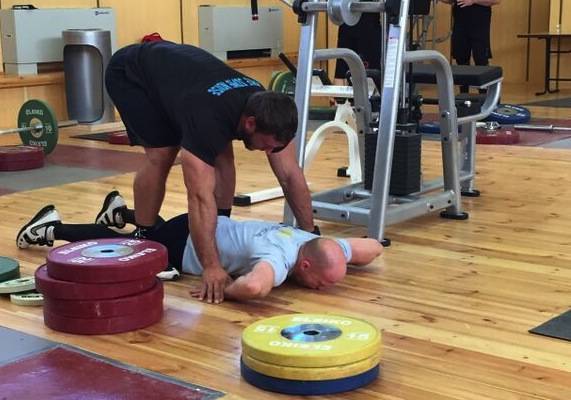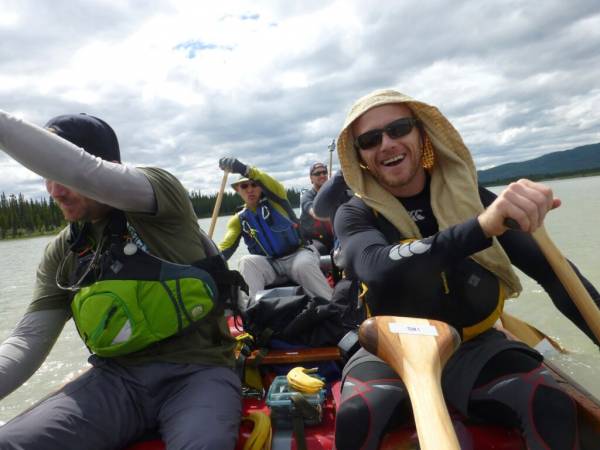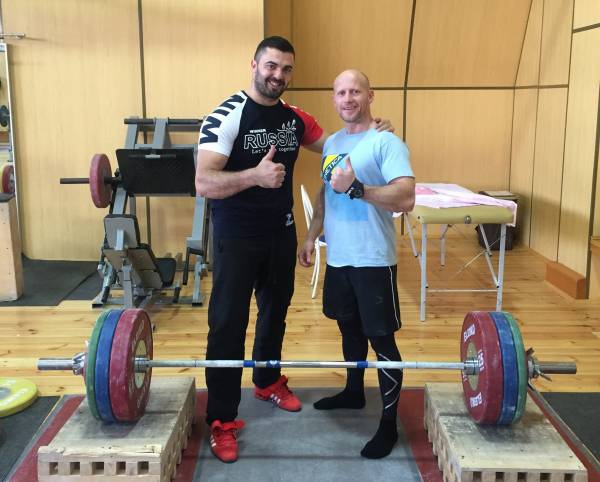You’re Not an Elite Athlete, So Stop Acting Like One
Immersed in your computer screen, sit in silence and watch a repetition run flawlessly. The seemingly effortless movement from start to finish leaves your mind searching for answers.
Like a voyeur you scroll again and again through the wondrous world of the internet. Everything you see is perfection on all levels, the elite work of the full-time athlete. Suddenly you're no longer comparing your maximum repetitions with the other guys in the gym, but with a Russian strength athlete who is only half as heavy as you. The waistband of your shorts clicks back into place as you check your manhood and feel the shrinkage of defeat.
But elite-level performance is based on simplicity and consistency. The comparison between you and the young woman is actually an insult to her pursuit of success. Before you get all of the elite, you need to understand that you need to fall back on the basics that exist inside and outside the gym.
Elite-level performance is based on simplicity and consistency.
1. Earn the right to progress
Training is a lifelong pursuit. The mistake many athletes make is failing to realize that every exercise is based on a certain basic level of movement. Sliding your feet and catching the bar deep in a snatch comes from hours spent in deep squats. From practicing with a wooden pole, when your whole body is yelling at you, to jumping on the pole like your hero.
“Training is more than just physical presence. Improving every aspect of your time in the gym is a mental exercise. "
Regardless of the sport or skill required, there is a simple question that needs to be answered. Where are you currently on this continuum of skills? You have to be honest and find your own starting point and then move forward gradually.
What you then have is information that you can translate into your own training plan. They adapt to the training behavior of your own body and do not break down your body with the volume that only a well-drilled machine of an athlete can handle.
2. Move with the aim of improving yourself
You don't have the luxury of filling your day with all the nuances of exercise. So let's be honest. Is the latest animal crawling pattern that everyone will see benefit your troubled ankle that you always complain about when you struggle in the squat?
"Is the latest animal crawling pattern you see everyone doing to benefit your troubled ankle that you always complain about when you crouch fight?"
From the moment you walk into the gym you have a purpose. Training is more than just physical presence. Improving every aspect of your time in the gym is a mental exercise.

Working on Purposeful Movement with Dmitry Klokov.
Does your movement preparation deal with mobility problems? Does this core drill complement a compound lift? Do you lose yourself in another world during your rest periods by scrolling down your phone or are you focusing on breathing exercises to recover faster? It's your decision.
3. Find radiators, not drains
Life will expose you to two different types of people. On the one hand, the person who always has a problem and complains all the time. The kind of person who with their negativity drains life from one person to the next.
"Your training room should be filled with a community of radiators that not only take your training, but also your everyday life to the next level."
Then you will encounter the energy boom that radiates over a smile from another athlete in the last seconds of a skin-ripping kettlebell snatch. This person is great to be with, and of the two, it will be the one who will keep you in the zone.
In a healthy and productive training environment, leave the little glitches of life behind you. Your exercise room should be filled with a community of radiators, which not only take your training, but also your everyday life to the next level.

Radiant energy after 715km in the boat with friends.
4. Find the right coach
At some point you have to make decisions yourself. As soon as you step onto the ring, the playing field or the secluded platform, you are in control. This is not applied simply by reading a book. It's an immersion in your workout and sport with a trainer who slowly gets you to ask your own questions.
“If you want to achieve more than you currently think possible, then look for a coach, preferably through a recommendation. Listen and above all trust his process. "
Spending two weeks with the 2004 Russian Olympic champion, Dmitry Berestov, asking endless questions and watching the coach-athlete interaction left me in no doubt. To quote Berestov himself: "The best athletes have been trained to think and not to hang out."
If you want to achieve more than you currently think possible, then look for a coach, preferably through a recommendation. Listen and most importantly, trust his process.

Me with Olympic champion Dmitry Berestov.
5. Get a living
You're more than just a six pack or a good gluteus muscle. You're a living example of what you're doing outside the gym walls. Two hours of exercise won't undo a missed meal, endless nights of poor sleep, or a work-life balance that burdens you more than the thought of a 2km rowing time trial when you are just over six feet tall (or is that so?) just me?).
"Remember, there is such a thing as life, especially when training isn't about life, death or medals."
Jokes aside, building up all of the small loads will go a long way when you put the pressures of volume and intensity in your workout time. Something is going to give way, and it's usually a part of the body. Remember that there is such a thing as life, especially when training isn't about life, death or medals.
diploma
It's easy to get caught up in the details of the programming and the OCD-like sexiness of the numbers, percentages, paces, and rep ranges shared across the internet. Realize that there is more to being elite than just spending time in the gym.
More like that:




